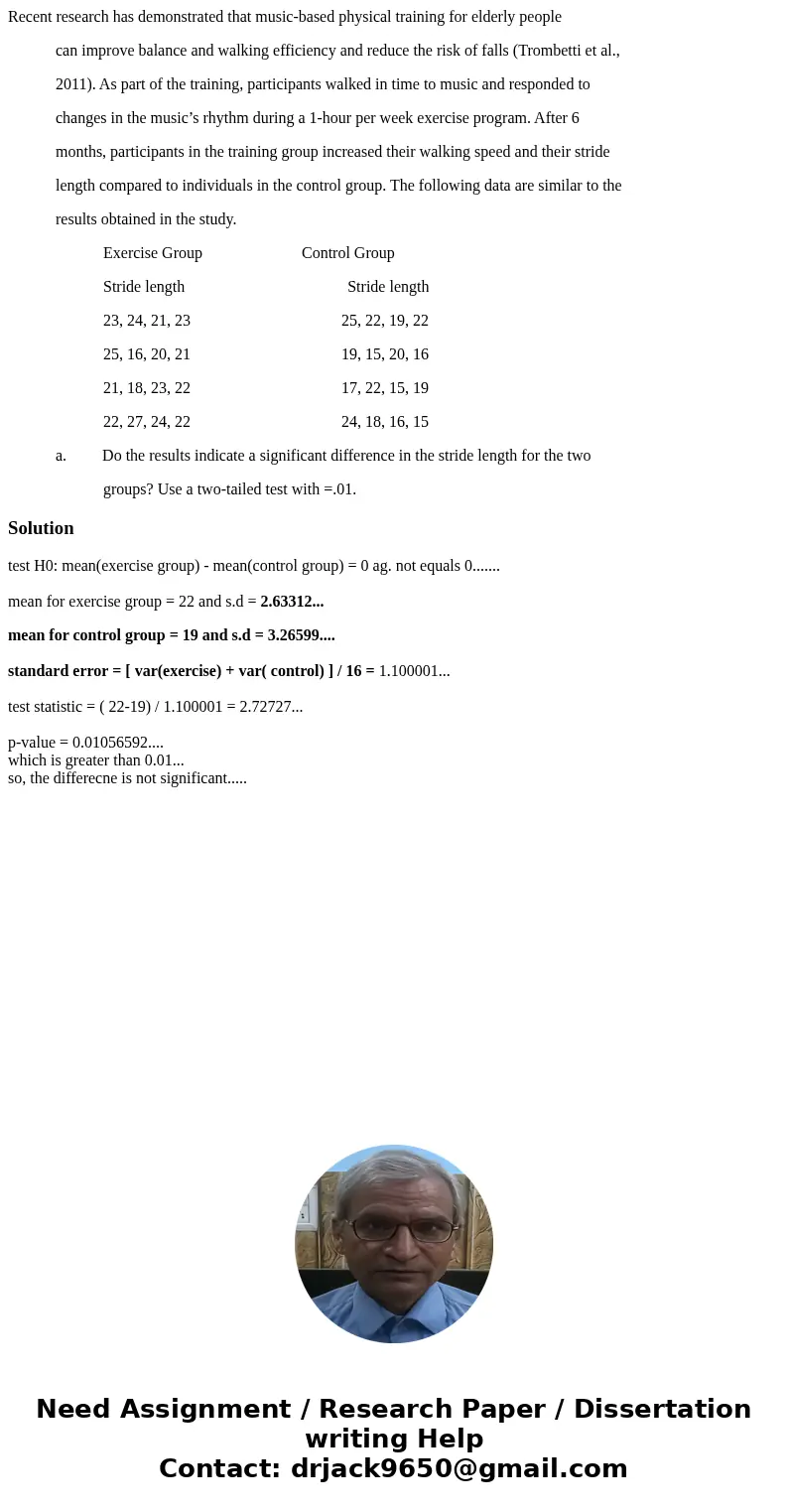Recent research has demonstrated that musicbased physical tr
Recent research has demonstrated that music-based physical training for elderly people
can improve balance and walking efficiency and reduce the risk of falls (Trombetti et al.,
2011). As part of the training, participants walked in time to music and responded to
changes in the music’s rhythm during a 1-hour per week exercise program. After 6
months, participants in the training group increased their walking speed and their stride
length compared to individuals in the control group. The following data are similar to the
results obtained in the study.
Exercise Group Control Group
Stride length Stride length
23, 24, 21, 23 25, 22, 19, 22
25, 16, 20, 21 19, 15, 20, 16
21, 18, 23, 22 17, 22, 15, 19
22, 27, 24, 22 24, 18, 16, 15
a. Do the results indicate a significant difference in the stride length for the two
groups? Use a two-tailed test with =.01.
Solution
test H0: mean(exercise group) - mean(control group) = 0 ag. not equals 0.......
mean for exercise group = 22 and s.d = 2.63312...
mean for control group = 19 and s.d = 3.26599....
standard error = [ var(exercise) + var( control) ] / 16 = 1.100001...
test statistic = ( 22-19) / 1.100001 = 2.72727...
p-value = 0.01056592....
which is greater than 0.01...
so, the differecne is not significant.....

 Homework Sourse
Homework Sourse